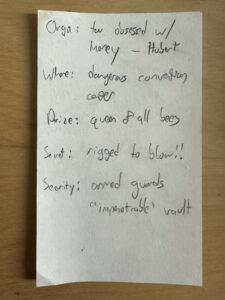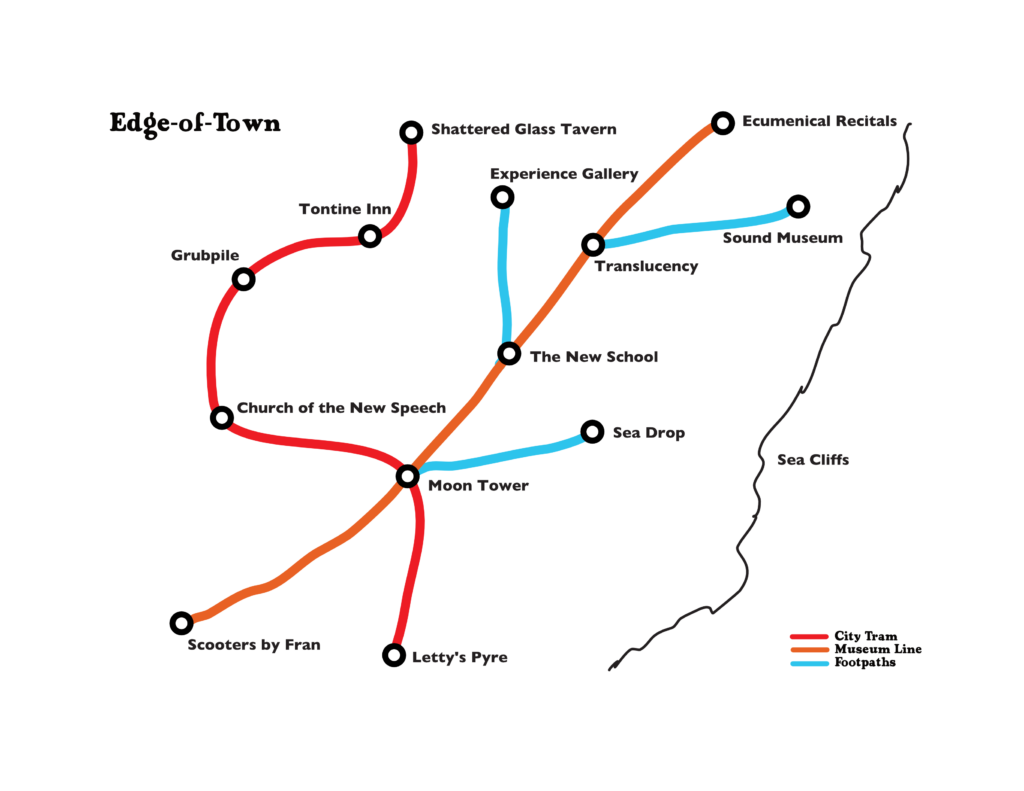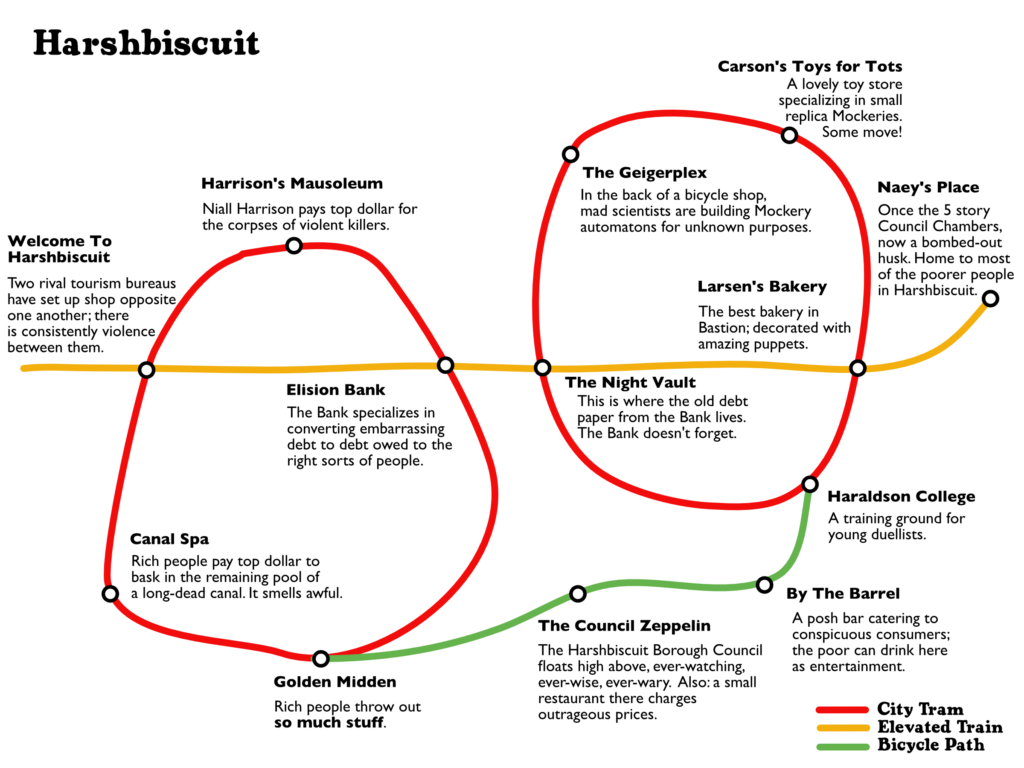I’ve been thinking about Delta Green in relation to copaganda for a long time. That is a different blog post, because it’s a long topic, but recently I started wondering about collective action in the Delta Green world. As a practical matter, I believe that mutual aid is a better environment for mental health than any police force. What would that mean in relationship to the Cthulhu Mythos?
Let’s start with the existing rules for using Bonds.
A Delta Green Agent can reduce Sanity loss by projecting trauma onto a Bond. This weakens the Bond, because it’s meant to represent the tension between the horror of the Mythos and the people or groups an Agent uses to maintain connection to their normal life. That makes sense in context but doesn’t allow for the concept of a group which is explicitly there to support members against those horrors.
An Agent can repress temporary insanity the same way, with the same consequences.
During downtime, there’s a rule for Agents who focus on ordinary obligations and relationships: they can Fulfill Responsibilities by working to support a Bond. This rule works as is to represent mutual aid.
There’s also a rule for generating new Bonds, which weakens one other Bond. That contains an assumption which I think doesn’t necessarily hold for mutual aid groups, because they’re groups that exist in order to strengthen community-wide connections.
Finally, Delta Green is a special kind of Bond: “Powerful Bonds form between people who have to look out for each other to survive.” Oh, hey, there’s what we’re looking for. The special rule here is that Agents who suffer trauma develop and deepen their Bond with Delta Green, again at the cost of weakening other Bonds.
Put all that together and I think we have the makings of a community-oriented house rule.
A Special Bond: Mutual Aid Groups
Powerful Bonds form between people who have to look out for each other to survive, but even more powerful Bonds form between people who choose to help others survive. Collective action with full knowledge of the Mythos in mind creates a powerful structure for cushioning the impact of the horrors your Agent faces.
Your Agent may take a Bond with a mutual aid group that is aware of the Mythos as a special Bond. This may be at character creation, particularly if the entire group wants to be part of a mutual aid group, or during play as per the usual rules for gaining Bonds. Bonds with unaware mutual aid groups are treated as normal Bonds, with the exception that they may convert to a special Bond at any point if the group discovers the Mythos or a portion thereof, and elects to take on fighting the Mythos as a core cause for the group.
Every time someone in your Agent’s mutual aid group undergoes a catastrophic trauma, there’s a chance your Agent develops or deepens Bonds with their teammates. Such traumas include those listed on page 37 of the Delta Green Agent’s Handbook. The rules for this are the same as the rules for the Delta Green bond, except that your Agent does not lose points from other Bonds. Also, reducing Sanity loss or repressing temporary insanity with the help of this Bond does not weaken other Bonds. An Agent cannot reduce Sanity loss by more than the value of the special Bond, even if they roll higher on 1d4.
All other rules for this Bond are as per the rules for the Delta Green Bond.
Your Agent may not have a Bond with Delta Green and a Bond with a mutual aid group. However, other Delta Green agents may have Bonds with your Agent as part of their Delta Green Bond.
Ramifications
This new type of Bond is clearly superior to other Bonds, including the special Delta Green Bond. This is intentional. I don’t think it means Agents can defeat the Mythos: you still have to spend Willpower Points to reduce Sanity loss, and those aren’t an infinite resource.
It would be possible but awkward for a Delta Green agent to also join a mutual aid group. This is intentional and true to life.
The obvious campaign frame here (which I may write up at some point) is a mutual aid group which discovers the Mythos and decides they need to fight what is obviously a fascist tendency. There are plenty of non-pacifist mutual aid groups.
References


